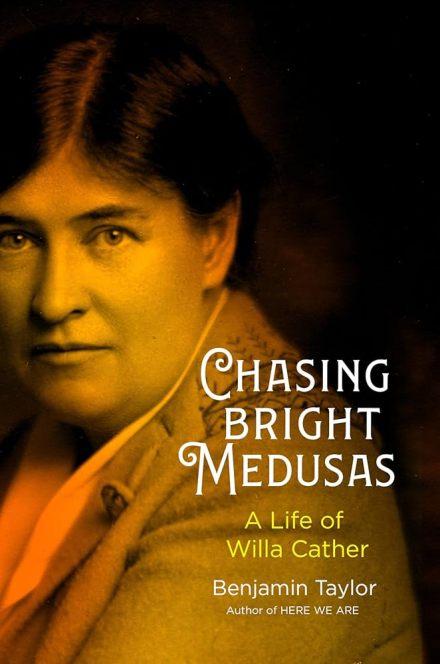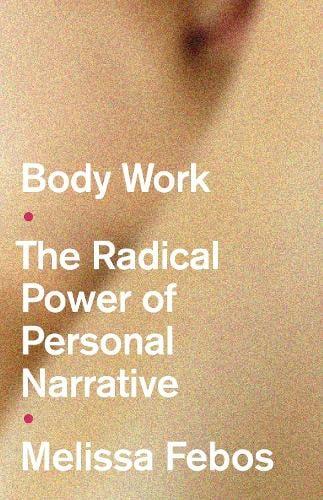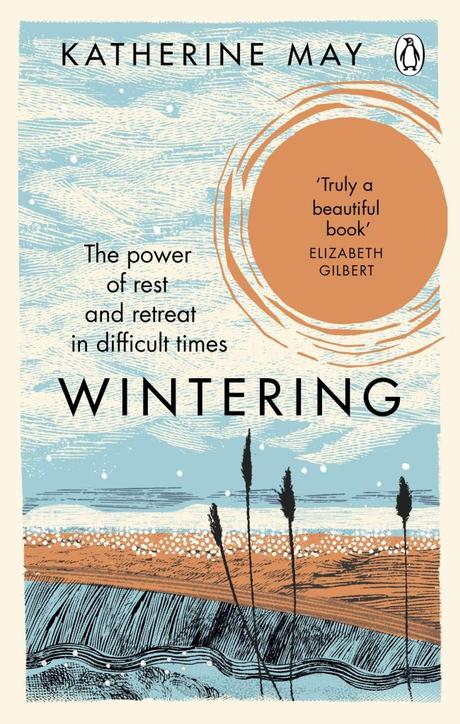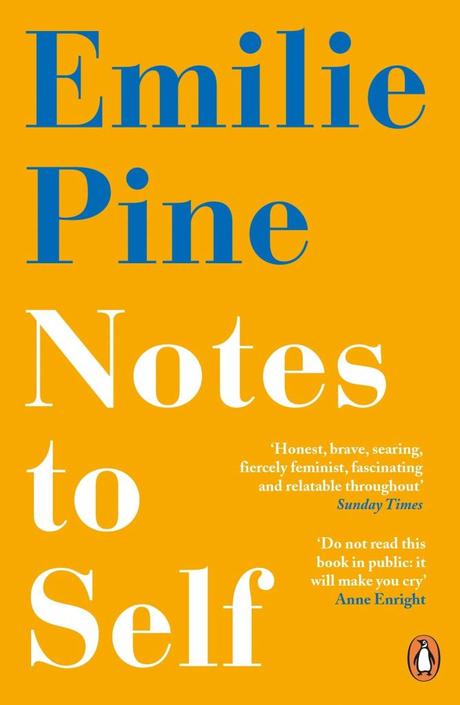
If you’re writing a short biography of a great writer, what matters more – the life or the works? I found myself pondering this question quite a lot when reading Chasing Bright Medusas, Benjamin Taylor’s recent biography of Willa Cather. I came to this book having read several of Cather’s novels but knowing nothing of her life. Taylor – according to his introduction – came to this biography with two particular goals in mind. The first is to grant the reader new access to Cather’s letters which can now be quoted rather than just paraphrased; the second his own desire to ‘frame the story as driven by Cather’s antagonism to the times in which she lived. She alone among the moderns wrote with unguarded admiration about the antique virtues: valor, loyalty, fulfillment of some higher destiny.’ Whether he does those things or not, I’m not sure. I certainly didn’t notice a great deal of quoting from her letters.
The first part of the biography is a brief skip through Cather’s early years and her pre-literary life, if you like, as a teacher then a journalist and then a moderately successful novelist. By the time we reached the end of this, Mr Litlove (who was reading the book with me) declared that he had no desire to read anything by Willa Cather and I wondered if her early life could possibly have been this dull. There seemed to be much emphasis on foolish things in articles Cather had written, and the flaws in her early novels. Things improved a lot when we hit A Lost Lady, which was a really interesting chapter. I didn’t know that Scott Fitzgerald wrote to Cather after the publication of The Great Gatsby, apologising for lifting the character of Daisy Buchanan from her Marion Forester. From here on in, Taylor details the masterpieces and then quite quickly – as Cather was in her 40s before finding success – we are into her sad decline precipitated in part by the gradual loss of her family. It was a bit of a surprise to find she mourned them so deeply, given they’d disappeared for most of the biography.
I ended the book wishing I’d learned more about Cather’s lifelong split between two women she loved, which seemed important to me but gets no air time. Mr Litlove ended it saying that, as far as he could tell, Cather wasn’t known for anything in particular other than the brilliance of her writing. My deeply unfair judgment was that Benjamin Taylor writes beautifully and had become distracted by equaling Cather’s prose rather than telling me stuff. Admittedly he only had 154 pages at his disposal, but I think I would have preferred to learn more about her as a woman. But maybe that’s not the task. What is a short biography of a writer meant to do?

By contrast, Melissa Febos’ book, Body Work; The Radical Power of Personal Narrative, was packed full of things to think about. It’s also a short book (153 pages, one less than the biography) containing just four long essays about the art of memoir writing. Perhaps the best essay in the book is one on the difficulty of writing about sex – an unavoidable difficulty for Febos who began her working life as a dominatrix (just incidentally, this reminded me forcibly of Mary Gaitskill, who was also a sex worker before becoming the author of the same kind of careful, detailed, unflinching, deeply considered nonfiction that Febos writes. Can I make a trend out of two women writers or is this mere coincidence?). Febos had many intriguing things to say, of which I select two here for your consideration of true/false. The first quote I felt excited about when I read it, wondering if it held the key to dealing with the disgraced literary figure. But then I remembered the excellent article I read on Alice Munro in The New Yorker last week, and didn’t think she fit this pattern. The second one sounds great to me, and wise, but I’m not in that community and can imagine different responses from those who are.
It would be convenient in many ways if how we live did not so fundamentally inform what we write, but of course it does. From what mysterious place in us does our most inspired work emerge? I believe from some creative intelligence that resides beneath our intellect, a close neighbor to the place where our worst impulses are born. We’ve spent a lot of time considering the work of disgraced men and agonizing over the question of whether we can still love their work. To this I say, of course. A better question might be: do you still love their work? I’ve found that while the work of terrible people can be redeeming in many ways – beautiful and politically potent, funny and moving – in the specific area of their terribleness it tends to fail […] In other words, the author’s imagination frequently fails to transcend his own personal limitations.’
Writers who have alternative sexualities ‘are often policed by our own communities to represent our sex in an idealised way. I get the logic. There are so few representations of our sex out there that we find any kind of spotlight must speak well for the whole community. The idealization and marketing of our marginalised sex experiences as wholesome and perfect is a great argument against the argument for our depravity. But it also erases so much of our humanity. Queerness does not have to be healthy to be human. No one of any race need prove their respectability by the sex they have or purport to have. We do not have to earn our humanity by being any kind of perfect. Ultimately, I think that representing the full range of our humanity is the best argument against its erasure.’

Version 1.0.0
" data-orig-size="1484,2339" sizes="(max-width: 650px) 100vw, 650px" data-image-title="Version 1.0.0" data-orig-file="https://litlove.wordpress.com/wp-content/uploads/2025/01/91nlfc48nnl.jpg" style="width:166px;height:auto" data-image-description="" data-image-meta="{"aperture":"0","credit":"","camera":"","caption":"Version 1.0.0","created_timestamp":"0","copyright":"","focal_length":"0","iso":"0","shutter_speed":"0","title":"Version 1.0.0","orientation":"0"}" width="650" data-medium-file="https://litlove.wordpress.com/wp-content/uploads/2025/01/91nlfc48nnl.jpg?w=190" data-permalink="https://litlove.wordpress.com/2025/01/10/some-questions-without-answers/version-1-0-0-2/" alt="" height="1024" srcset="https://litlove.wordpress.com/wp-content/uploads/2025/01/91nlfc48nnl.jpg?w=650 650w, https://litlove.wordpress.com/wp-content/uploads/2025/01/91nlfc48nnl.jpg?w=1300 1300w, https://litlove.wordpress.com/wp-content/uploads/2025/01/91nlfc48nnl.jpg?w=95 95w, https://litlove.wordpress.com/wp-content/uploads/2025/01/91nlfc48nnl.jpg?w=190 190w, https://litlove.wordpress.com/wp-content/uploads/2025/01/91nlfc48nnl.jpg?w=768 768w" class="wp-image-5152" data-large-file="https://litlove.wordpress.com/wp-content/uploads/2025/01/91nlfc48nnl.jpg?w=440" />I was reading Katherine May’s Wintering a while ago, but I seem to have stopped. I’d taken a long time to get to this book, which on paper ought to be something I should enjoy, having spent a large chunk of my life wintering with chronic fatigue syndrome – an illness I have in fact referred to in the past as the nuclear winter of the personality. But I will admit I had my doubts before I finally picked it up. The premise, as far as I understand it, is that May experiences illness which forces her to rest, and rather than succumb to the demons of lethargy and inertia, she finds ways to use the time positively, for self-nurture and renewal. This is a lovely premise and I’d be a terrible Grinch to scorn it. But… and this is a big but for me, I don’t think that you can domesticate bad times in this way. May’s beautifully written book reminded me of how I feel when Mr Litlove has a cold and is hunkered down at home with the TV remote and I’m obliged to go out into a rainy day and run the errands. Wouldn’t it be great to swap places? It looks like he’s having a delightful time, resting and entertaining himself and generally dropping out of the tense grind of life. But the grass is only greener if you don’t actually feel ill. When you feel actively ill, it’s hard to enjoy anything at all. Throw poverty or trauma into the mix and it would be even harder.
The problem with the really negative experiences of life is that you suffer during them, and some suffering can’t be tamed. And if it could, we would never be forced to change our lives in ways that are ultimately better for us, which is the most you can hope to get out of an ordeal. But I might be unfair here. I haven’t read the whole book, far from it, and after all, Katherine May is doing what she sets out to do. Her clear intention is to find a way to wring the most comfort and clarity from difficult times, and to do so in an intensely soothing prose. And it’s been a massive hit so obviously she’s helping a lot of readers. What do I know?

Version 1.0.0
" data-image-title="Version 1.0.0" data-orig-file="https://litlove.wordpress.com/wp-content/uploads/2025/01/71qbhvnhfdl.jpg" style="width:139px;height:auto" data-image-meta="{"aperture":"0","credit":"","camera":"","caption":"Version 1.0.0","created_timestamp":"0","copyright":"","focal_length":"0","iso":"0","shutter_speed":"0","title":"Version 1.0.0","orientation":"0"}" width="667" data-medium-file="https://litlove.wordpress.com/wp-content/uploads/2025/01/71qbhvnhfdl.jpg?w=195" loading="lazy" data-permalink="https://litlove.wordpress.com/2025/01/10/some-questions-without-answers/version-1-0-0-3/" alt="" height="1023" srcset="https://litlove.wordpress.com/wp-content/uploads/2025/01/71qbhvnhfdl.jpg?w=667 667w, https://litlove.wordpress.com/wp-content/uploads/2025/01/71qbhvnhfdl.jpg?w=1334 1334w, https://litlove.wordpress.com/wp-content/uploads/2025/01/71qbhvnhfdl.jpg?w=98 98w, https://litlove.wordpress.com/wp-content/uploads/2025/01/71qbhvnhfdl.jpg?w=195 195w, https://litlove.wordpress.com/wp-content/uploads/2025/01/71qbhvnhfdl.jpg?w=768 768w" class="wp-image-5154" data-large-file="https://litlove.wordpress.com/wp-content/uploads/2025/01/71qbhvnhfdl.jpg?w=440" />Can you accuse a book of doing something too well? That’s a little how I feel about Notes To Self by Emilie Pine. Another book of memoir essays, this one is a big hit with me. The only issue is that it is such a propulsive read, I find myself racing to the end of the essay to see what happens when I want to slow down and savour the journey. I’ve read two essays so far, one about her father nearly dying from liver failure (complicated by his being in Greece where health care is hit or miss) and one about her attempts to get pregnant. I inhaled both. What did I miss? There’s a great big pile of books waiting for my attention and I’m not about to read this twice, so I’m going to have to find a way to slow myself down.
